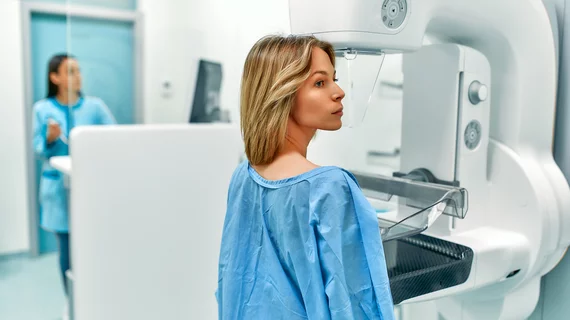Most women view mammography AI positively but still want human readers involved
Women have positive views about using artificial intelligence to assess their mammograms, but they still want human readers involved in the process, according to new survey data.
Researchers sent the anonymous questionnaire to more than 84,000 individuals imaged through BreastScreen Norway in October to December of 2022. Of those, 8,355 filled out responses, experts detailed March 16 in the European Journal of Radiology [1]. About 11% said they have “extensive” knowledge about AI and most said they were willing to participate in studies using it for clinical decision support (64%) or triage (55%).
However, many stressed the importance of being informed about the use of AI-assisted image assessment and still involving human radiologists in this work.
“The participants in our survey reported a positive attitude towards the use of AI in mammography screening, expecting AI to increase breast cancer detection and screening efficiency,” lead author Åsne Sørlien Holen, with the Cancer Registry of Norway, and colleagues concluded. “Targeted information and increased knowledge of AI could help achieve high participation in AI studies and successful implementation of AI in mammography screening. Women participating in such programs are important stakeholders and including their perspectives will be crucial in future studies and implementation of AI in BreastScreen Norway.”
Respondents with moderate or extensive knowledge of AI, in general, tended to be more positive toward participating in such studies. The same held true for those with high education levels and confidence in their health status. A large proportion said they also would be moderately confident or confident about results, if they were informed that AI alone performed their image assessment.
“Many of the respondents in our study reported concern that implementation of AI in BreastScreen Norway would result in a loss of human interaction in the screening assessment, as well as lead to an increased risk of false negative screening examinations,” the authors cautioned.
You can read more about the results, including potential study limitations, at the link below.

